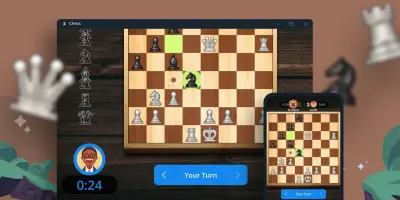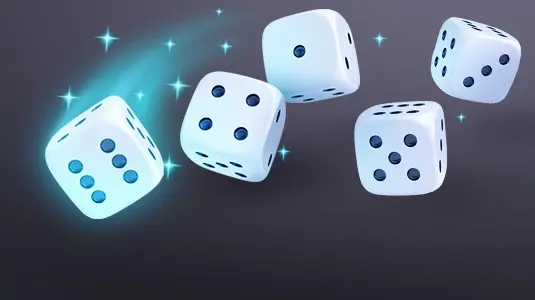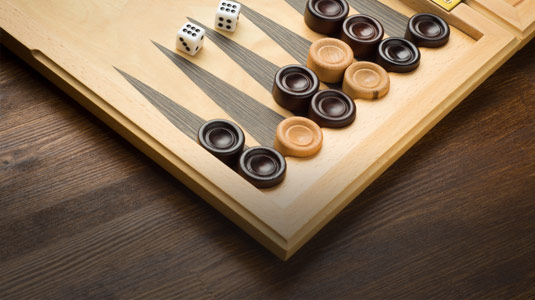 Chess
ChessChess with real players. Strategize from opening to endgame and checkmate your opponent’s king.
Play Chess online with friends for free
Check & Checkmate
Since the object of the game is to capture the king, players are obligated to protect their kings at all costs. If a piece threatens to capture the opponent's king, that king is said to be "in check," and its owner must do something to protect the king at once. In fact, it is illegal to make a move that leaves or puts one's own king in check.
There are three possible ways to get out of check:
- Move the king to a square where it is not under attack.
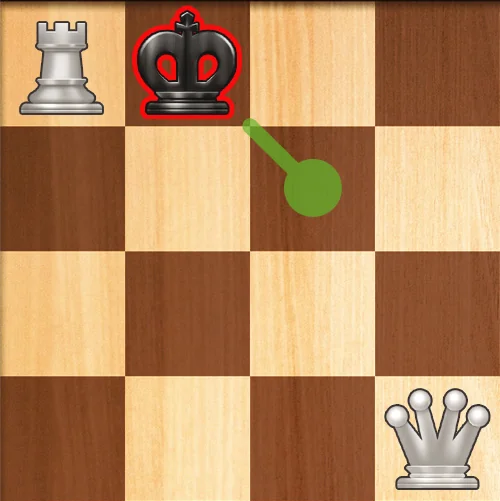
- Interpose a piece between the king and the attacking piece, blocking the line of attack (this only works if the checking piece is a bishop, rook, or queen).
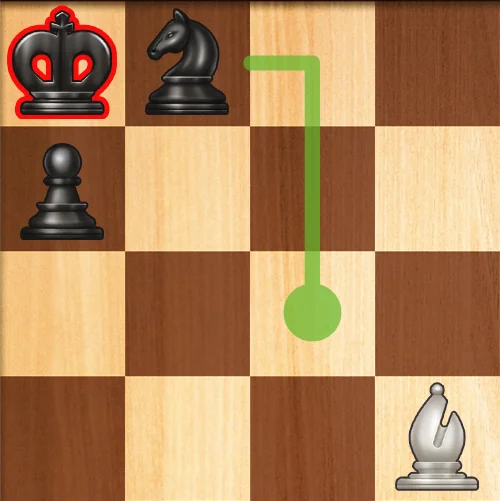
- Capture the piece that is attacking the king. In the below image, the knight can capture the bishop that is attacking the king.
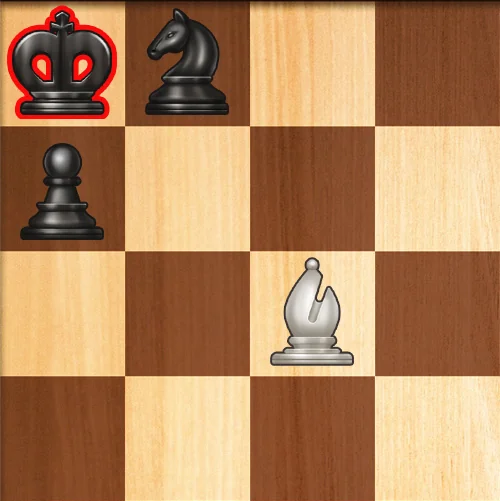
If none of these methods are possible, the king isn't just in check--the king is checkmated, and the game is over. Note: in the below image the knight cannot move. Doing so would place its king in check by white's rook.
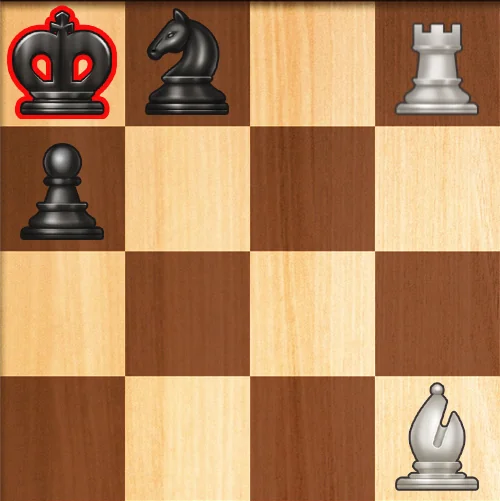
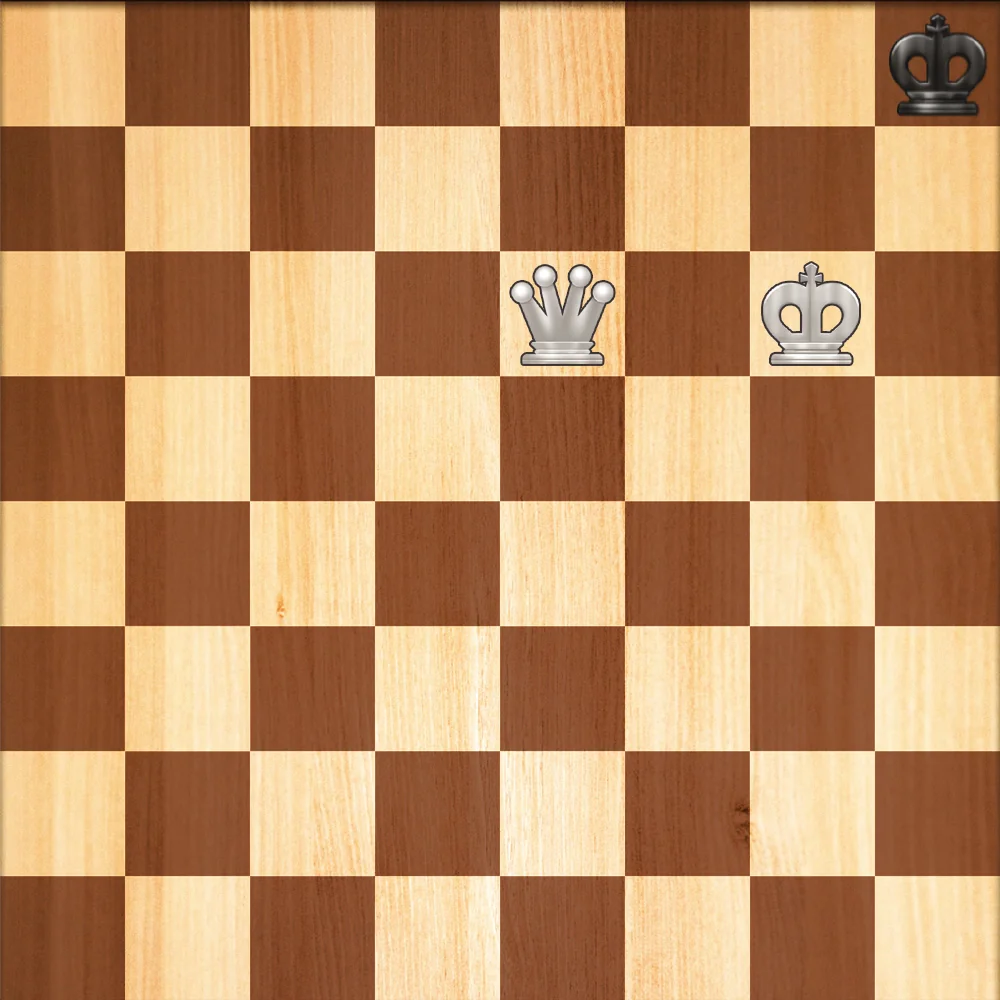
Stalemate
Sometimes there's a position in which a king is not in check, and its owner is supposed to make the next move, but any move will put the king in check.
For example, in the above diagram, if it's Black's turn in this position, he or she has no legal move, and is said to be "stalemated." A stalemate is a draw--neither player wins or loses.
Other Draws
- Agreement: Players may agree to offer a draw at any time.
- The 50-move rule: If each player makes 50 moves without a piece being captured or a pawn being moved, the game is a draw. (Exceptions to this rule have been added over the years to allow players more moves in which to win in certain positions, but it's safe for most players to remain ignorant of these very rare situations.)
- Through a repetition of moves: If a position is repeated three times (not necessarily consecutively) when it is the same player's turn to move, the game is a draw.
- Insufficient mating material: If neither player has enough pieces ever to be able to checkmate the other, the game is a draw. This would be true, for example, if only the two kings were left on the board, or if one player had only a king and a knight and the other only a king. A king and a rook, though, are enough to checkmate a king--which means that a king and pawn are enough to win provided the pawn can be promoted.
Resigning
A player may resign (concede the game) at any time.
Top Ranked Winners
Can I play online?
Yes. Install the Plato app on iOS, Android, or macOS to play the full catalog with friends or matchmade opponents. You can also play Ocho online in your web browser — no install needed.
Can I play with friends?
Yep. Tap Create Private Game, then share the invite link or invite from your contacts. When they tap Accept, they're seated at your table.
Is it free?
Yes — free to play and ad-free. If you buy something, it's for looks (themes, profile flair), not power.
Is it fair?
Shuffles, deals, dice, and timers run on Plato servers, not your device. Everyone plays by the same rules and no one can peek at hidden information.
Is it safe?
You can block and report from profiles or chat. Public spaces use filters and human review. Some rooms use Chat Pass to deter spam, and privacy controls let you limit who sees you online.
Live vs. turn-based: what’s the difference?
Both are turn-taking; the difference is the clock. Live uses short timers for quick back-and-forth. Turn-based gives you longer — often up to 24 hours per move in games like Chess — so you can play at your pace.
